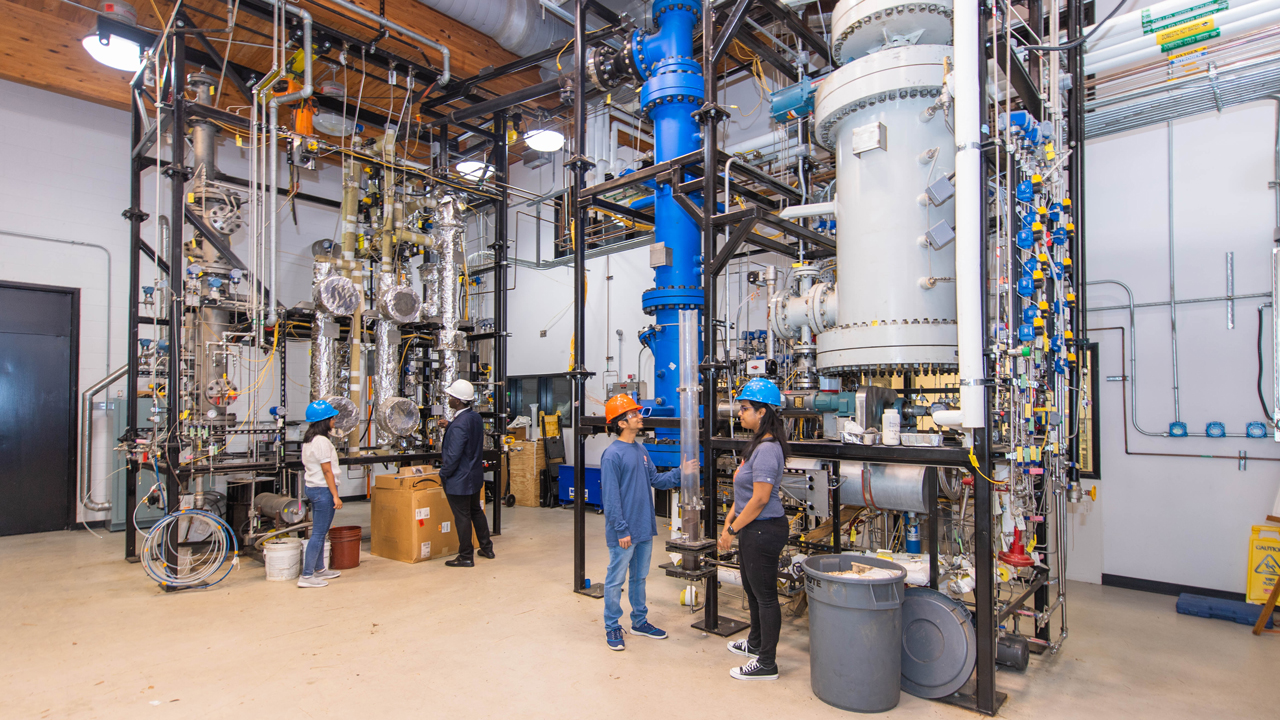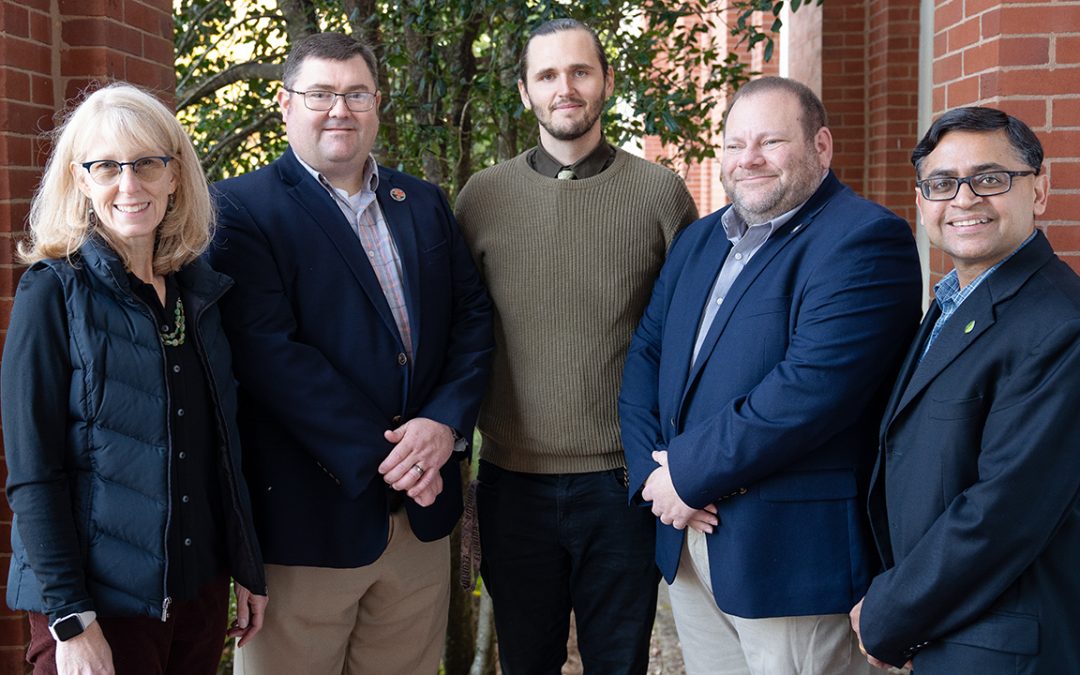For researchers studying environmentally friendly farming practices, biochar is a game-changer.
Biochar, a charcoal-like substance created by heating plant waste, is a groundbreaking innovation in the field of sustainable farming. It is beneficial for improving soil quality, recycling organic plant material and capturing greenhouse gas emissions from the agricultural industry.
Auburn University’s Center for Bioenergy and Bioproducts (CBB) is on the cutting edge of rapidly advancing research surrounding biochar and its uses. Sushil Adhikari, the center’s director, is excited about the direction of biochar research at Auburn.
“We are exploring the possibilities of biochar that can be produced from locally available biomass,” Adhikari said. “We are looking at the potential for capturing nutrients and reusing them, reducing greenhouse gas emissions from agriculture practices to make farming more sustainable, capturing carbon dioxide and sequestering in the form of stable carbon and potentially generating revenue for farmers to store carbon for large carbon dioxide emitters.”
At the CBB, faculty members from several disciplines, including those in the Samuel Ginn College of Engineering and Auburn’s College of Agriculture, are conducting research surrounding the production and use of biochar. They are currently working on several different projects that explore how this naturally derived substance can make farming more sustainable.
Title: “Developing effective adaptation strategies to enhance the resilience of farmers under changing climate”
Principal investigator: Jasmeet Lamba of Biosystems Engineering
Also involved: Adhikari, William Batchelor and Hossein Jahromi of Biosystems Engineering; Charles Chen of Crop, Soil & Environmental Sciences; Neha Potnis of Entomology and Plant Pathology; and Wendiam Sawadgo from the Department of Agricultural Economics & Rural Sociology. The CBB helped to assemble the team and contribute technical information to the research.
These researchers received a $6 million grant from the National Science Foundation to study how farmers can use biochar to minimize the effects of drought while at the same time reducing agricultural greenhouse gas emissions. They are also studying which plant genes are associated with a higher crop yield when treated with biochar and assessing farmers’ attitudes toward using this new product.
Title: “Tripartite: Dual-Function Engineered Biochar for Excess Soil Phosphorus Sorption with Subsequent Slow Release for Cost-Effective and Sustainable Crop Production”
Principal Investigator: Adhikari
Also involved: Sawadgo, Jahromi, colleagues in Ireland and Northern Ireland and faculty from the University of Delaware and New Mexico State University.
Adhikari and his colleagues are part of a $1 million grant from the United States Department of Agriculture to study how to capture excess phosphorus in the soil and slowly release it to benefit plant growth. In areas near chicken farms, including those in Alabama, there are often large buildups of phosphorus from synthetic fertilizers. When phosphorus runoff enters streams and creeks, it can deplete the oxygen supply, creating “dead zones” that harm marine and plant life and disrupt the aquatic ecosystem. The team’s goals are to learn how to keep those carbon emissions out of waterways and to divert that carbon to plants at a rate that will help them grow.




